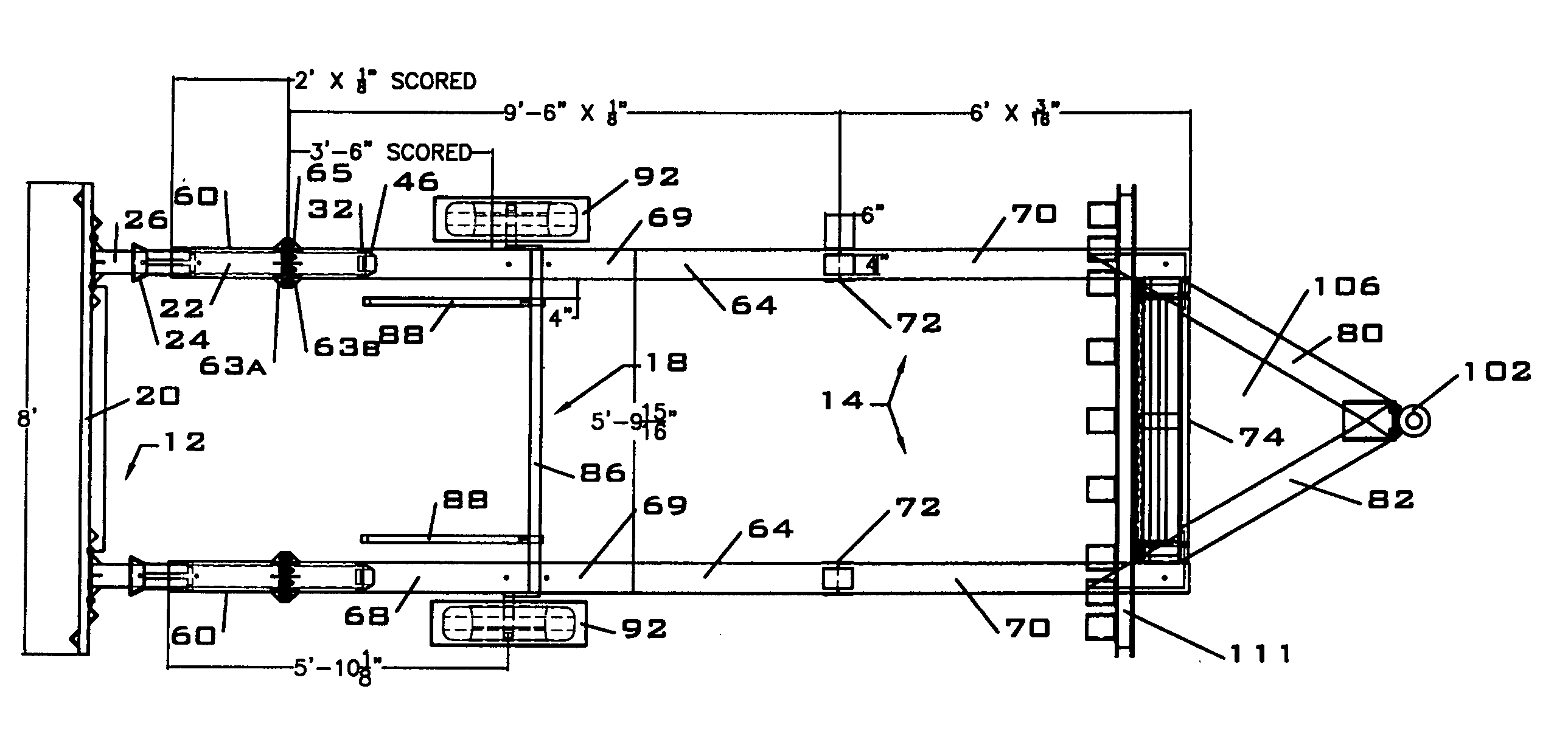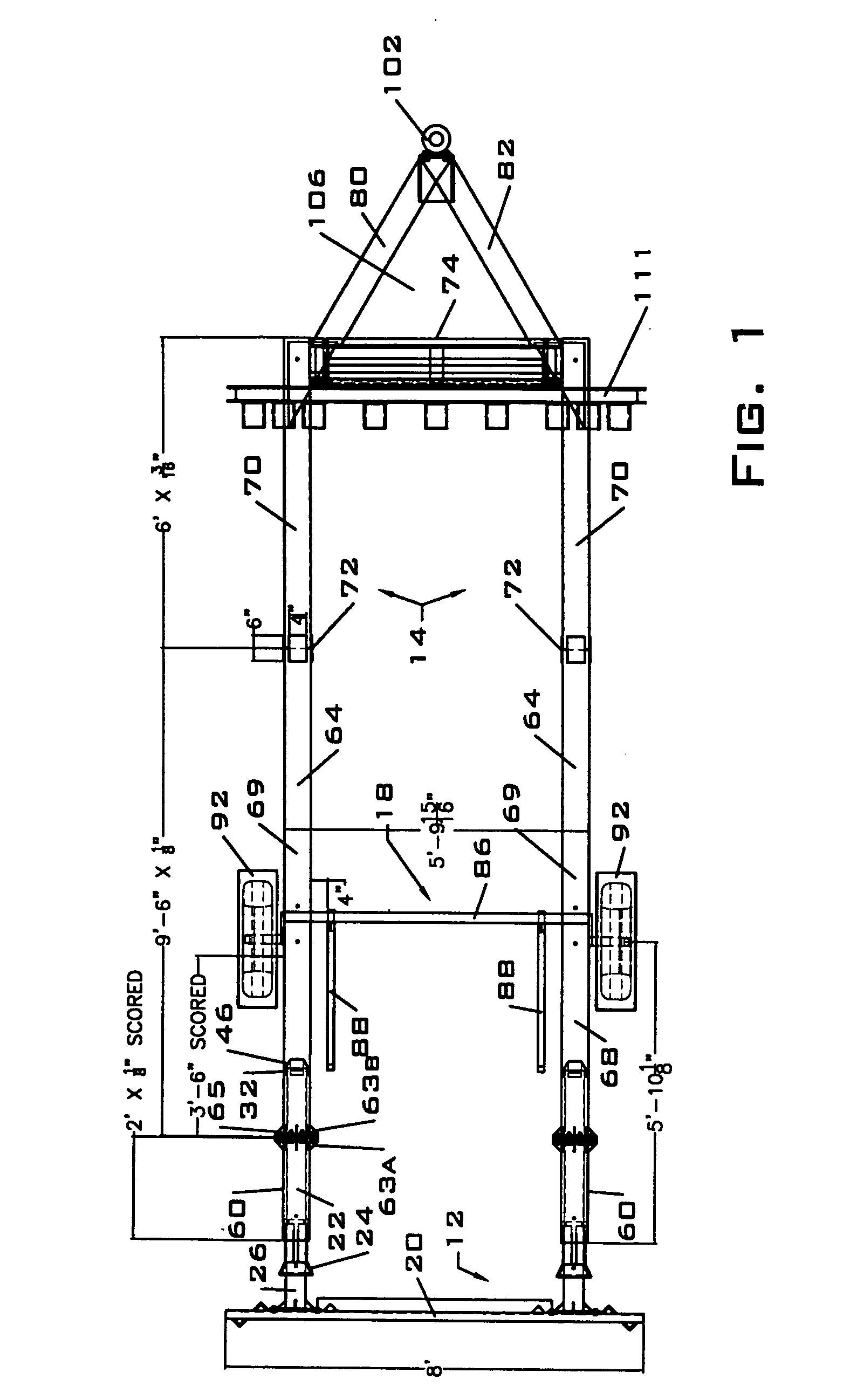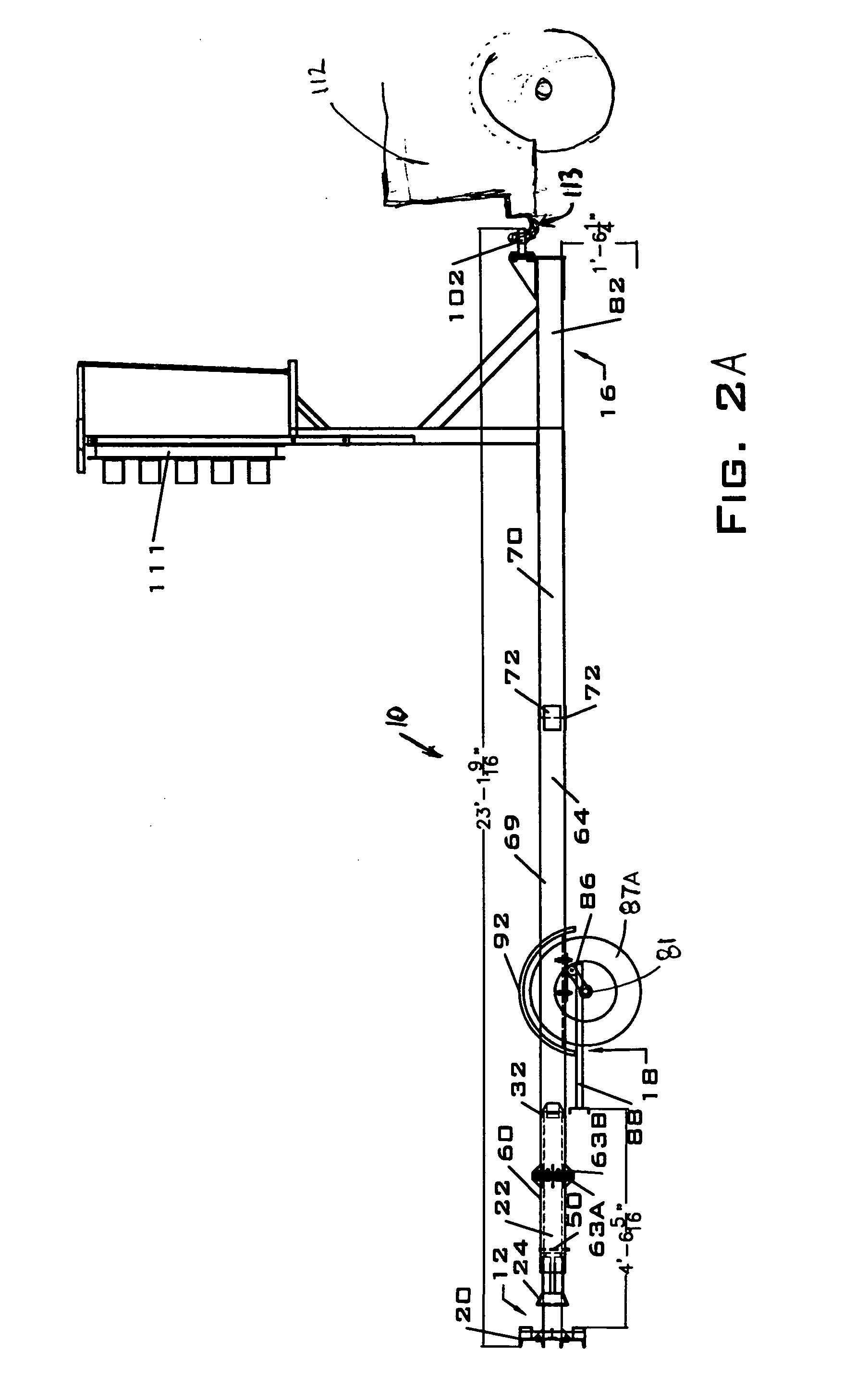Trailer mounted attenuator with breakaway axle assembly
a technology of axle assembly and attenuator, which is applied in the direction of bumpers, cycle equipment, and ways, etc., can solve the problems of trailer not being able to the tendency of the attenuator to be knocked laterally out of the path of the impacting vehicle, etc., to improve the maneuverability of the vehicle and eliminate the two primary deficiencies
- Summary
- Abstract
- Description
- Claims
- Application Information
AI Technical Summary
Benefits of technology
Problems solved by technology
Method used
Image
Examples
Embodiment Construction
[0038] As seen in FIGS. 1 and 2A and 2B the present inventive trailer mounted attenuator (10) has an impact head assembly (12); a trailer frame (14); a hitch assembly (16); and a breakaway axle assembly (18). FIG. 2A illustrates the journals (81) of the breakaway axle assembly (18) affixed to a conventional wheel set or tire arrangement (87A), and the hitch (102) connected to a towing vehicle (112). FIG. 2B shows the axle assembly (18) affixed to a driven post (87B) and the hitch (102) attached to a fixed object or barrier (104). The post (87B) may be driven into the ground and attached to the assembly (18) anywhere along the length of axle (86) or at the journals (81). Signage (111) may be mounted to the attenuator as required.
[0039] The overall length of the TTMA (10) is 8384 mm (23 ft-1 9 / 16 in.). The maximum width of the trailer assembly is 2438 mm (8 ft.) at the impact head assembly. The height from the ground to the bottom of the trailer frame is 464 mm (18¼ in.). It should b...
PUM
 Login to View More
Login to View More Abstract
Description
Claims
Application Information
 Login to View More
Login to View More - R&D
- Intellectual Property
- Life Sciences
- Materials
- Tech Scout
- Unparalleled Data Quality
- Higher Quality Content
- 60% Fewer Hallucinations
Browse by: Latest US Patents, China's latest patents, Technical Efficacy Thesaurus, Application Domain, Technology Topic, Popular Technical Reports.
© 2025 PatSnap. All rights reserved.Legal|Privacy policy|Modern Slavery Act Transparency Statement|Sitemap|About US| Contact US: help@patsnap.com



